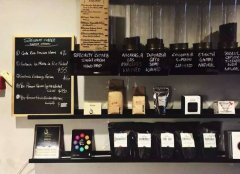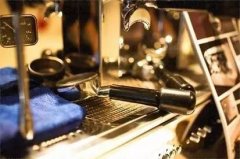Brazil Hilado Coffee Bean Cup score Measurement Flavor description characteristics Origin Information

For professional baristas, please follow the coffee workshop (Wechat official account cafe_style)
Coffee beans: Brazil Cerrado Natural 2 Screen 18
Baking apparatus: Hottop
Baking date: 2008/12/14PM16:00
Baking degree: City+
Tasting cup test: 2008/12/14PM22:00
Brewing utensils: small Eagle Grinding 2.5th Hario DWP-3 Flange hand Punch
Brewing temperature: 90C
Powder content: 24g (glass + bamboo mixing rod)
Pour powder and tile
Flush for the first time; finish baking.
Pour water for the second time
Pour into the water for the second time; keep water.
Completion stage of pouring water
Drip filtration is completed; coffee powder is U-shaped and extracted evenly
400CC, pour coffee into the cup.
Tasting
The tasting cup scores 93.
Brazil, located in South America, began to grow coffee in 1727. At that time, coffee seeds were smuggled by Francisco de Mello Palheta from the neighboring French colony (French Guiana) in northeastern Brazil. In 1845, Brazil accounted for 45% of global coffee production. So far, Brazil's total output is still the first in the world, accounting for about 1 of the world's total output.
In Brazil, coffee trees are grown at an altitude of 650, 2600 feet above sea level. The main producers are concentrated in the central and southern provinces, such as Minas Gerais, Sao Paulo, and Parana. More than 300,000 farms are engaged in coffee cultivation, covering an area of no more than 10 hectares, most of which are harvested by machines and treated in the sun. About 80% of coffee is Arabica. 65% of coffee up to export grade is exported from the port of Santos (Santos).
Brazil-Syrador Coffee Brazil-Cerrado
Syracuse is a famous high-quality coffee producing area in Brazil. Its processing method is relatively fine. Unlike Brazilian Santos coffee, which is treated in the sun, Syrador coffee is mostly washed or semi-washed.
Premium Syrador coffee with nutty aromas, similar to Brazilian Santos but more delicate and clean. The aroma is moderate, the entrance feels soft and smooth, with a slight sweetness at the end.
Brazilian Syracuse
Brazil Cerrado
◎ production area Cerrado
◎ raw bean treatment: washed or semi-washed
◎ Flavor is a famous high-quality coffee producing area in Brazil. High-quality Syrador coffee contains nutty aromas, with a soft and smooth taste on the palate and a slightly sweet finish.
Syracuse is a famous high-quality coffee producing area in Brazil. Its processing method is relatively fine.
Unlike Brazilian Santos coffee, which is treated in the sun, Syrador coffee is mostly washed or semi-washed.
Premium Syrador coffee with nutty aromas, similar to Brazilian Santos but more delicate and clean.
The aroma is moderate, the entrance feels soft and smooth, with a slight sweetness at the end.
Brazilian coffee is mainly produced in three states. The most famous Cerrado is a small producing area in the province of Minas, which is smooth, fragrant and contains micro-fruit acid. Raw bean: SC19 TOP GRADE
Characteristics: rich in nutty almond flavor, sweet with sour fruit. Slightly sweet and delicate aroma, comfortable and mild flavor, with fruity aftertaste.
With nutty aromas, the palate is delicate and clean. The aroma is moderate, the entrance feels soft and smooth, with a slight sweetness at the end.
Important Notice :
前街咖啡 FrontStreet Coffee has moved to new addredd:
FrontStreet Coffee Address: 315,Donghua East Road,GuangZhou
Tel:020 38364473
- Prev

Introduction of Brazilian Hilado Coffee Bean Flavor Variety introduction of producing area Distribution Manor
The exchange of professional baristas please follow the coffee workshop (Wechat official account cafe_style) located in South America, Brazil began to grow coffee in 1727. At that time, coffee seeds were smuggled by Francisco de Mello Palheta from the neighboring French colony (French Guiana) in northeastern Brazil. In 1845, total coffee production in Brazil
- Next

Description of Manor Information characteristics and Flavor in Pacamara Coffee producing area of El Salvador
For the exchange of professional baristas, please follow the coffee workshop (Wechat official account cafe_style) [Manor introduction]: Finca Ataisi Manor is located in the volcano-producing area of Izalco (Izakou) in El Salvador's Sonsonate province. Because the soil of the manor is very rich in organic matter, the average elevation of the manor is about 1800 meters above sea level and the terrain is steep, which is the highest in the area.
Related
- Detailed explanation of Jadeite planting Land in Panamanian Jadeite Manor introduction to the grading system of Jadeite competitive bidding, Red bid, Green bid and Rose Summer
- Story of Coffee planting in Brenka region of Costa Rica Stonehenge Manor anaerobic heavy honey treatment of flavor mouth
- What's on the barrel of Blue Mountain Coffee beans?
- Can American coffee also pull flowers? How to use hot American style to pull out a good-looking pattern?
- Can you make a cold extract with coffee beans? What is the right proportion for cold-extracted coffee formula?
- Indonesian PWN Gold Mandrine Coffee Origin Features Flavor How to Chong? Mandolin coffee is American.
- A brief introduction to the flavor characteristics of Brazilian yellow bourbon coffee beans
- What is the effect of different water quality on the flavor of cold-extracted coffee? What kind of water is best for brewing coffee?
- Why do you think of Rose Summer whenever you mention Panamanian coffee?
- Introduction to the characteristics of authentic blue mountain coffee bean producing areas? What is the CIB Coffee Authority in Jamaica?

